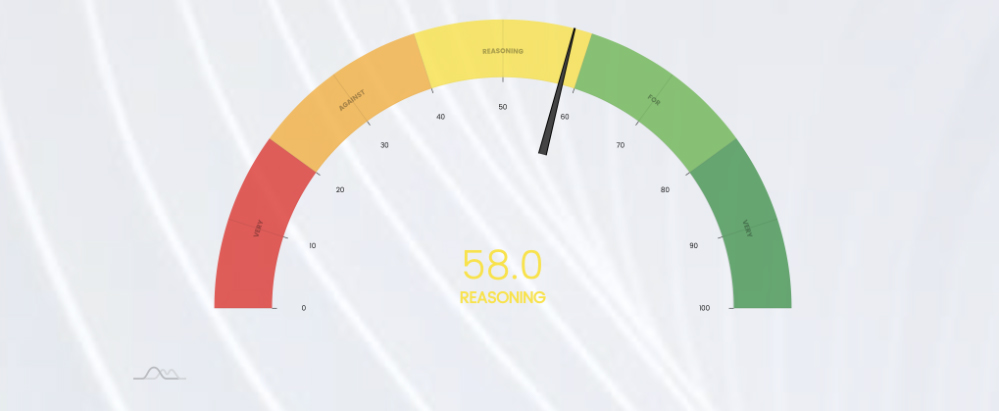Decision-Making Calculator
Our Decision-Making Calculator aims to help you think through an important decision you need to make. It provides you scores on how your reasoning stacks up on one side or the other, grounded in frameworks in the behavioral sciences. The score is aimed to help advise your decision (but not dictate it). There is no cost for users. Click the calculator you would like to use, which are shown below on this same page.
What is the scientific evidence? Preliminary results on a diverse U.S. sample show predictive validity of the calculator’s reasoning concepts on reliable scales across important human decisions, such as those related to relocating, job decisions, purchases, family decisions, and relationship decisions. Moreover, users have demonstrated statistically significant increases in average confidence, satisfaction, and perceived accuracy after completing the calculator. Although the calculator cannot guarantee increases in every case, initial results demonstrate positive decision outcomes on average. You can participate by clicking on either the shorter or extended version below:


Short Calculator
This typically takes about 5-10 minutes when participants have only a few reasons and counterarguments. Completion time may increase when more issues are assessed or when you realize that you need to gather more information. Optional: Decision-making calculator preview. Click below to go live.

Extended Calculator
This typically takes an extra 10 to 20 minutes and includes an additional report that shows how your decision, confidence, and satisfaction may have changed after using the calculator. Completion time may increase as more issues are processed.
Frequently Asked Questions (FAQ)
What is it?
The Decision-Making Calculator, created in the Dynamic Network Lab, aims to help you, your team, or a group you represent carefully think through important decisions in an effort to promote your decision clarity, confidence, satisfaction, and reduce regret. To do this, the calculator assesses your specific reasoning and counterarguments. The science of the Decision-Making Calculator is grounded in behavioral reasoning theory (e.g., from Professor James D. Westaby’s theorizing and methodologies), deliberate reasoning processes (e.g., from aspects of Nobel Laureate Daniel Kahneman’s conceptualizing), and other critical concepts from leading theorists in the social, organizational, and decision sciences.
How do I start?
It’s simple. You can get started immediately by clicking on the links above. No registration required.
How does it work?
In our Pros, Cons, and Counterarguments approach, the calculator automatically combines your own reasoning and counterargument assessments into a summary score that you can think about to possibly help you make a more clear, informed, and justifiable decision. We recommend that those engaging with the calculator be as knowledgeable as possible about the issues (and options) related to the decision, since research suggests that this may help reduce decision biases, which can be numerous. While the calculator cannot guarantee positive outcomes of your decision-making, it may help you more deeply process and understand the important issues, arguments, and situations you face today and to anticipate in the future once your decision is implemented. Your participation also provides key input into research that aims to advance decision quality and satisfaction. In turn, this may help researchers improve the calculator in future iterations.
Where did it come from? Who does this research?
This research is conducted by university researchers in the Dynamic Network Lab, Program in Social-Organizational Psychology, TC, Columbia University. www.DynamicNetworkLab.Org
Is it private?
Yes, this research is private and confidential. We do not request participants’ names, and we do not connect identifying information to individual responses in efforts to keep responses anonymous.
Is it voluntary?
Yes, participation is fully voluntary.
Is there a cost or advertising?
No, there is no cost and no advertising in the calculators.
